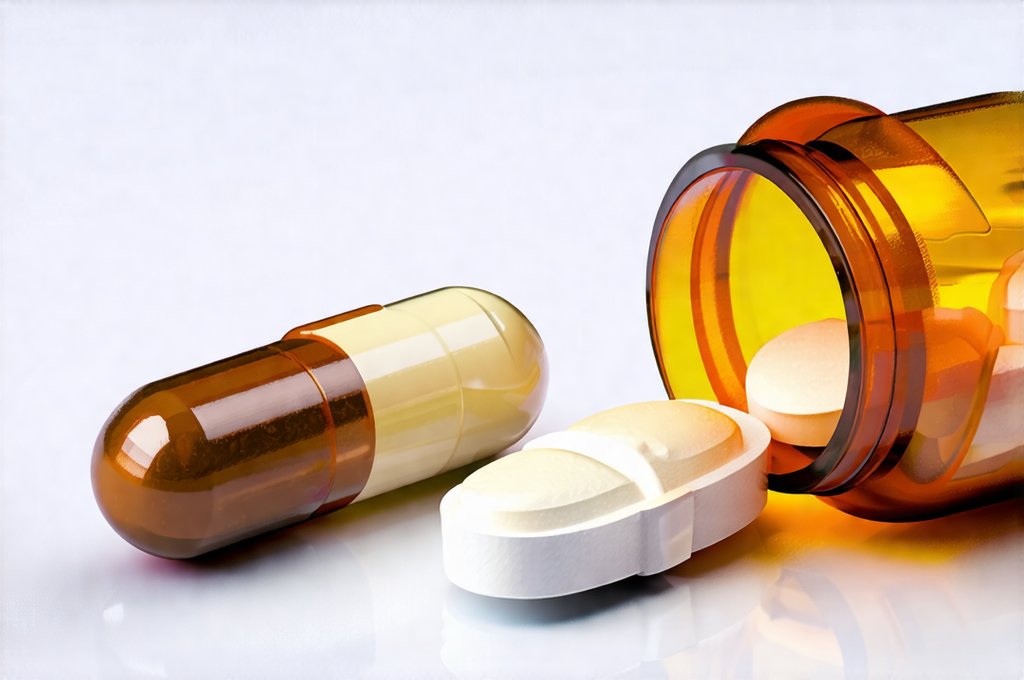Many people experience heartburn, acid reflux, or indigestion at some point in their lives – often attributing it to dietary choices or stress. While these are common triggers, it’s less frequently considered that medications themselves could be the culprit behind these uncomfortable symptoms. This is a surprisingly prevalent issue, and recognizing the connection between your medication and digestive distress can be crucial for improving your health and well-being. Dismissing reflux-like symptoms as simply “part of life” when they coincide with starting or changing medications can delay proper investigation and potentially lead to unnecessary suffering or incorrect self-treatment.
It’s important to understand that the relationship between medications and gastrointestinal issues is complex. Medications don’t always cause reflux directly; sometimes, they exacerbate existing conditions, change digestive motility, or interfere with the body’s natural protective mechanisms against acid. This isn’t necessarily a sign the medication is “bad,” but it does highlight the importance of awareness and open communication with your healthcare provider. Many medications are essential for managing chronic illnesses, and finding ways to mitigate their side effects, including reflux-like symptoms, is often a collaborative process. This article will explore some common signs that your medication might be contributing to your digestive discomfort and what steps you can take to address it.
Understanding Medication-Induced Reflux
Medication-induced reflux isn’t always straightforward. It’s not just about taking a pill and immediately feeling heartburn. The symptoms can manifest in various ways, sometimes subtly, making the connection difficult to identify. The timing of symptom onset is often a key indicator – did the discomfort begin shortly after starting a new medication or adjusting a dosage? This temporal relationship should raise a red flag. It’s also important to consider that some medications affect the lower esophageal sphincter (LES), the muscle that prevents stomach acid from flowing back up into the esophagus. Weakening or relaxing this sphincter can significantly increase the risk of reflux.
Furthermore, certain medications directly irritate the lining of the esophagus or stomach, leading to inflammation and discomfort. Others may alter gastric emptying – the rate at which food moves through your digestive system. Delayed gastric emptying increases the amount of time food remains in the stomach, potentially increasing pressure and the likelihood of acid reflux. This can create a vicious cycle, as increased acidity further irritates the esophageal lining. It’s worth noting that even seemingly unrelated medications—those prescribed for conditions outside of digestion—can have unexpected gastrointestinal side effects. Perhaps you could look at gut symptoms as a warning sign?
Finally, medication interactions play a role. Taking multiple medications simultaneously increases the chances of adverse effects and complex symptom presentation. A seemingly harmless over-the-counter pain reliever combined with a prescription medication could amplify reflux symptoms, even if neither drug individually would cause significant issues. Therefore, a thorough review of all medications—prescription, over-the-counter, vitamins, and supplements—is essential when investigating medication-induced reflux. If you’re concerned about your vitamin intake, read supplements causing gut stress?
Common Culprits: Medications Linked to Reflux
Identifying which medications are most likely to contribute to reflux is the first step in understanding your symptoms. While this isn’t an exhaustive list, several classes of drugs have been frequently associated with gastrointestinal side effects. Nonsteroidal anti-inflammatory drugs (NSAIDs), such as ibuprofen and naproxen, are notorious for irritating the stomach lining and potentially causing ulcers, which can exacerbate reflux. Certain antibiotics, while vital for treating infections, can disrupt the gut microbiome, leading to digestive upset and even contributing to Helicobacter pylori infection—a known cause of gastritis and peptic ulcers.
Bisphosphonates, used to treat osteoporosis, are also frequently linked to esophageal irritation. These medications remain in the esophagus longer than intended, increasing exposure to the drug and potentially causing inflammation. Calcium channel blockers and nitrates, commonly prescribed for heart conditions, can relax the lower esophageal sphincter, making reflux more likely. Even some antidepressants – particularly tricyclic antidepressants – have been shown to increase the risk of heartburn and indigestion. It’s also important to consider medications used to treat asthma or chronic obstructive pulmonary disease (COPD), as certain inhalers can contribute to dry mouth and reduced saliva production, which are protective factors against acid reflux. Are sugar alcohols causing your bloating?
The key takeaway here is that any medication has the potential to cause gastrointestinal side effects. Don’t assume your medication is safe simply because it’s prescribed by a doctor or available over-the-counter. Pay attention to how your body responds and discuss any concerns with your healthcare provider. If you’re experiencing issues year-round, are gut symptoms seasonal?
Recognizing the Symptoms: Beyond Heartburn
Reflux-like symptoms aren’t always as clear-cut as classic heartburn. While that burning sensation in your chest is a telltale sign, many people experience more subtle or atypical symptoms, making it difficult to connect them to medication. These can include chronic cough, especially at night; hoarseness; sore throat; difficulty swallowing (dysphagia); and even asthma-like wheezing. These seemingly unrelated symptoms could be caused by micro-aspirations of stomach acid into the lungs, triggering inflammation and irritation.
Another common symptom is bloating and abdominal discomfort. Medications that alter gut motility can lead to gas buildup and a feeling of fullness or pressure in your abdomen. Nausea and vomiting are also possible side effects, particularly with certain medications like chemotherapy drugs or opioids. It’s important to differentiate between nausea caused by medication and nausea related to other factors, such as food poisoning or viral infections. Persistent burping is another less-recognized symptom that can be a sign of increased acid reflux.
Don’t dismiss seemingly minor symptoms. Even if they don’t significantly disrupt your daily life, they could indicate an underlying problem caused by medication. Keep a detailed log of your symptoms – when they occur, how severe they are, and what medications you are taking—to help identify potential connections. It may be time to evaluate superfoods if you’re experiencing digestive issues.
What to Do If You Suspect Medication-Induced Reflux
If you suspect that your medication is causing reflux-like symptoms, the first step is communication with your healthcare provider. Do not stop taking any prescribed medication without consulting them first. Abruptly stopping a medication can have serious consequences for your health. Instead, schedule an appointment and explain your concerns in detail, providing information about your symptoms, medications (including over-the-counter drugs and supplements), and the timing of symptom onset.
Your doctor may recommend several strategies to manage medication-induced reflux:
1. Dosage Adjustment: Reducing the dosage of the offending medication might alleviate symptoms while still maintaining its therapeutic effect.
2. Medication Switch: In some cases, your doctor may be able to switch you to a different medication within the same class that is less likely to cause gastrointestinal side effects.
3. Timing Changes: Adjusting when you take the medication can sometimes help. For example, taking a bisphosphonate with plenty of water before lying down can minimize esophageal exposure.
Beyond these medical interventions, lifestyle modifications can also play a significant role:
– Elevate the head of your bed during sleep to reduce nighttime reflux.
– Avoid eating large meals before bedtime.
– Limit caffeine, alcohol, and spicy foods, which can trigger heartburn.
– Maintain a healthy weight.
– Quit smoking.
In some cases, your doctor may recommend over-the-counter medications like antacids or proton pump inhibitors (PPIs) to temporarily manage symptoms. However, long-term use of PPIs should be avoided if possible due to potential side effects. Remember, the goal is not just to suppress symptoms but to address the underlying cause – which in this case is likely medication-related. A comprehensive evaluation and collaborative approach with your healthcare provider are essential for finding the best solution. Are smoothies causing issues?


















